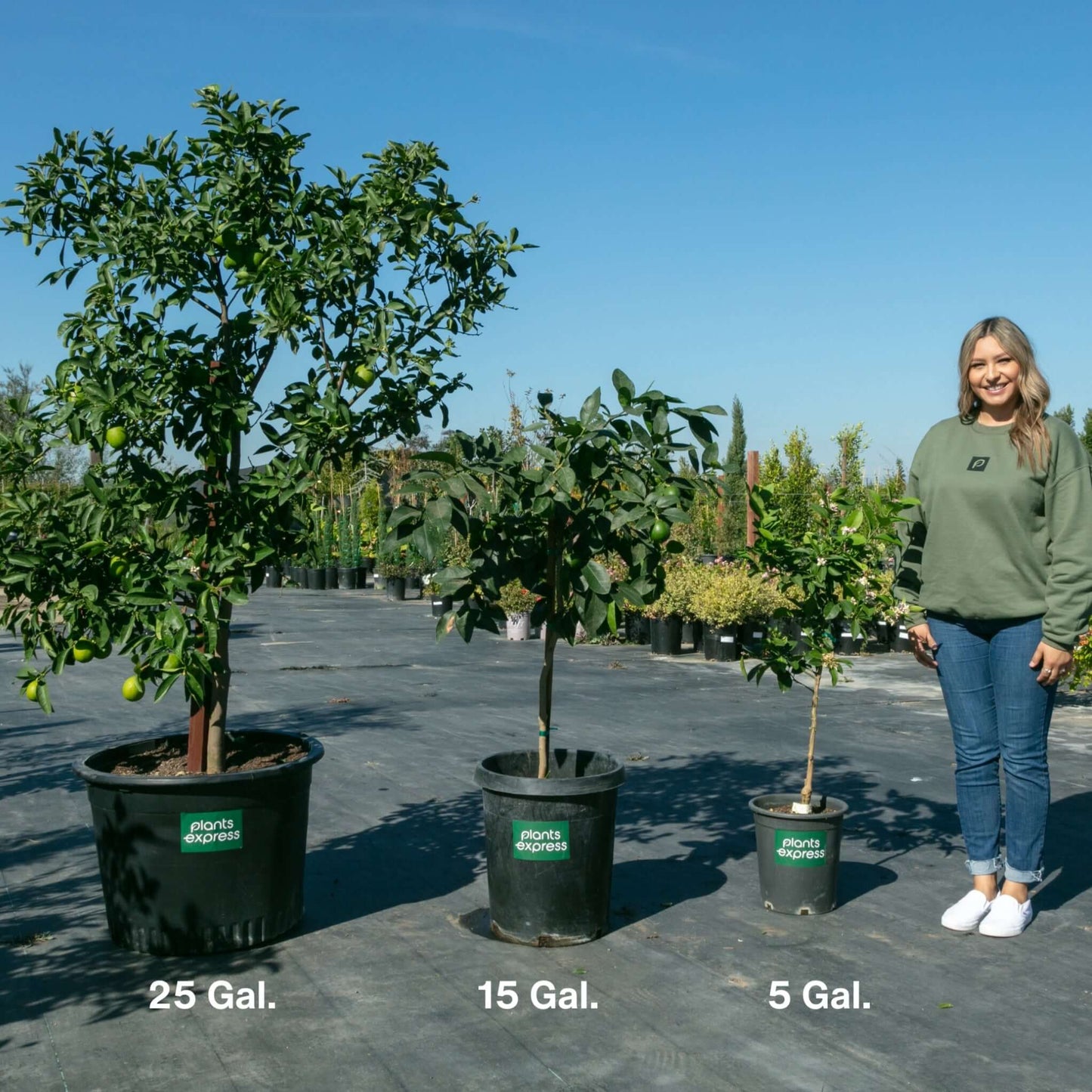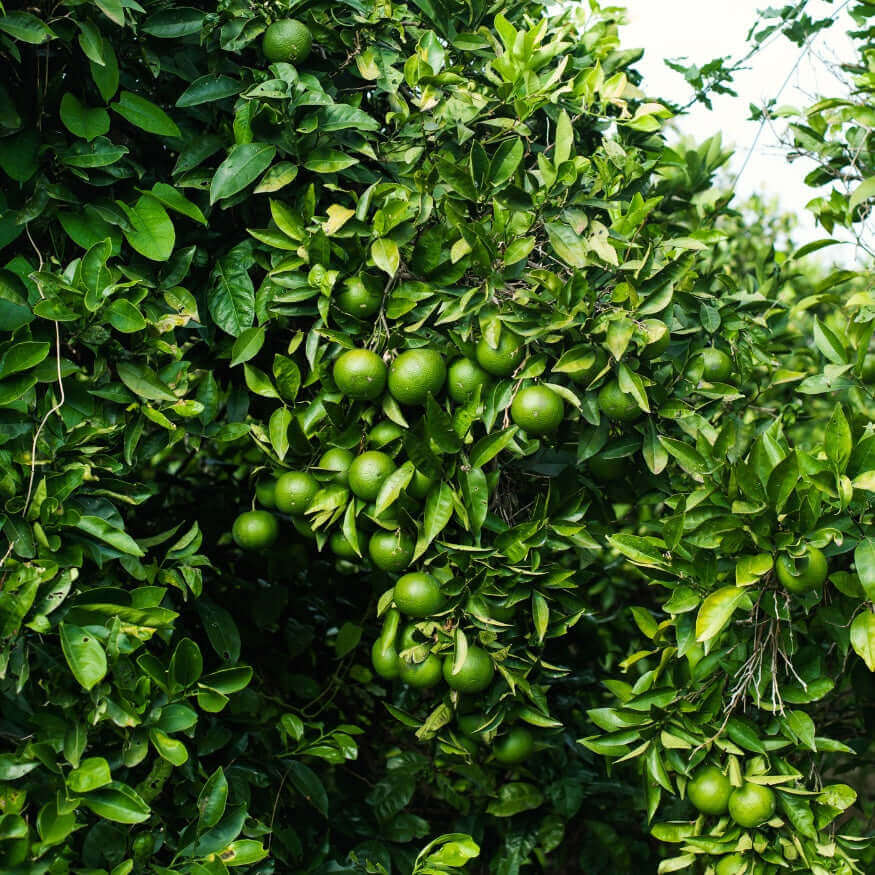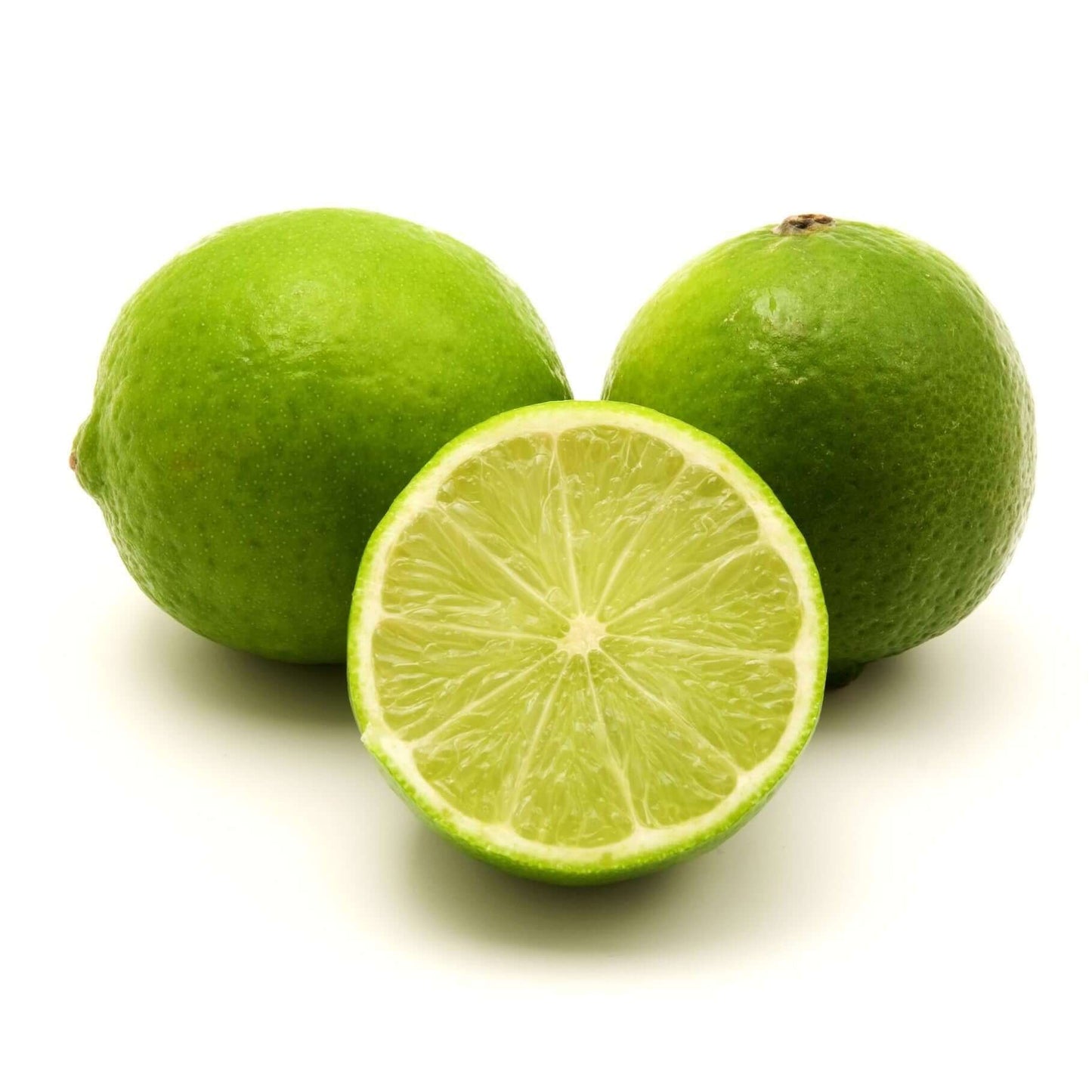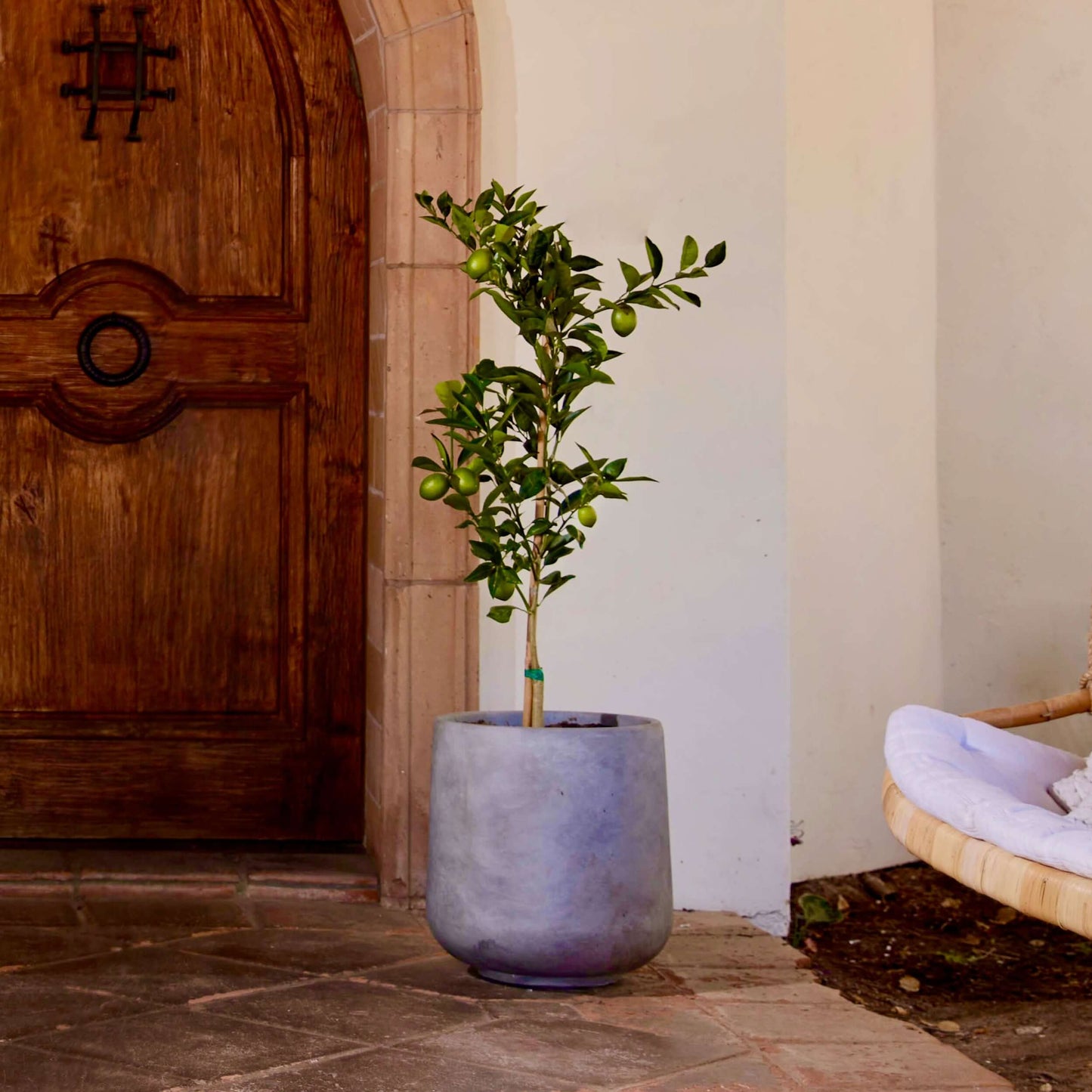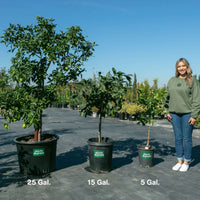
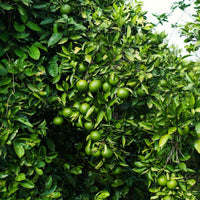
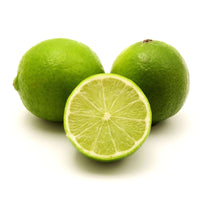
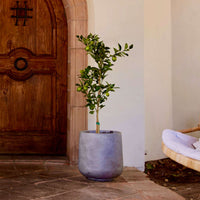
Orders over $399 are delivered for free! All others have a flat rate delivery fee of $40.
Persian 'Bearss' Lime Tree
Persian 'Bearss' Lime Tree
Citrus latifolia
24-hour money-back guarantee
Free delivery on orders over $399
In Stock
Couldn't load pickup availability
Also known as Tahitian or Persian Lime, the Persian 'Bearss' Lime tree is the most common lime of home gardeners and commercial growers. The juicy, acidic, seedless fruit has that true lime flavor. The thin, smooth glossy green rind turns pale yellow when fruit has matured. Approximately 2-2.5 inches in size, Bearss limes are larger than those on a Key Lime Tree.
The Persian 'Bearss' Lime Tree is an excellent choice for any garden or patio! It's a small, vigorous tree that produces a lot of delicious, juicy limes.
Order your Persian 'Bearss' Lime Tree from Plants Express today. Easy to grow, Persian 'Bearss' Lime Tree is a great choice for those looking to add a tropical touch to their garden or backyard.
Semi-Dwarf vs. Standard citrus trees:
The difference between a semi-dwarf tree and a standard tree is the mature height. Semi-dwarf citrus trees are smaller and grow to approximately two-thirds the size of a standard tree form. Depending on the position of the lower branches on the trunk, a semi-dwarf citrus can look like a bush with a short trunk, or a tree with a trunk.
The mature height of a Persian 'Bearss' Lime tree based on average growing conditions is:
Semi-Dwarf tree: 10-15 ft. tall.
Standard tree: 15-20 ft. tall.
The mature height and fruit production of your citrus tree will depend on several environmental factors such as climate, light, soil type, texture, fertility and moisture, and pruning practices. Your citrus tree can easily be maintained at a smaller size with annual pruning.
Planting Bearss lime trees (Citrus latifolia), also known as Persian limes, can be a great addition to your garden, as they produce juicy, flavorful limes. Here’s a step-by-step guide to help you successfully plant and care for Bearss lime trees:
Choosing the Right Location
- Sunlight: Bearss lime trees thrive in full sun, requiring 6 to 8 hours of direct sunlight each day.
- Space: Ensure there’s enough space for the tree to grow. Aim for about 10 to 15 feet of clearance around it to allow for its mature size.
Soil Preparation
- Soil Type: They prefer well-draining soil. A sandy loam or potting mix designed for citrus trees works well.
- pH Level: The ideal pH range for lime trees is between 6.0 and 7.5.
Planting the Tree
- Timing: The best time to plant is in spring or early fall, avoiding frost and extreme heat.
- Digging the Hole: Dig a hole that is about 2 to 3 times wider than the root ball and the same depth. This provides ample space for the roots to spread.
Planting Steps
- Remove the Tree from the Pot: Carefully take the Bearss lime tree out of its container, being cautious not to damage the roots.
- Loosen Roots: If the roots are circling the root ball, gently loosen them to encourage outward growth.
- Place the Tree: Position the tree in the center of the hole, ensuring the top of the root ball is level with the surrounding soil.
- Backfill the Hole: Fill in the hole with soil, gently packing it down to eliminate air pockets. Water the soil as you backfill to help settle it.
Watering
- Initial Watering: Water the tree deeply right after planting to help it establish.
- Ongoing Watering: Keep the soil consistently moist but not soggy. Water regularly during the first year, especially in dry periods. Once established, lime trees are more drought-tolerant but prefer consistent moisture during fruit development.
Fertilizing
- Fertilization Schedule: Use a balanced, slow-release fertilizer specifically formulated for citrus trees.
- Timing: Apply fertilizer in early spring and mid-summer.
- Amount: Follow the manufacturer’s instructions for the appropriate quantity based on the age and size of your tree.
Mulching
- Mulch Layer: Apply a 2- to 4-inch layer of organic mulch (like wood chips or straw) around the base of the tree, keeping it a few inches away from the trunk.
- Benefits: Mulching helps retain soil moisture, suppress weeds, and regulate soil temperature.
Pruning
- Pruning Time: Prune in late winter or early spring to remove any dead or damaged branches and to shape the tree.
- Technique: Light pruning is generally sufficient; avoid heavy pruning, as this can stress the tree. Maintain an open canopy to improve air circulation and sunlight penetration.
Pest and Disease Management
- Monitoring: Regularly check for pests such as aphids, spider mites, and scale. Use insecticidal soap or neem oil to treat infestations.
- Diseases: Keep an eye out for root rot and other diseases. Ensure proper watering practices and good drainage to prevent these issues.
Pollination
- Self-Pollination: Bearss limes are generally self-pollinating, but planting multiple citrus trees nearby can enhance fruit set and yield.
Harvesting
- Maturity: Bearss limes typically mature in about 6 to 12 months after flowering. They are ready to harvest when they turn bright green and feel slightly soft to the touch.
- Post-Harvest: Limes can be harvested slightly underripe, as they will continue to ripen after being picked.
The Persian 'Bearss' Lime Tree is easy to grow in the garden, patio, balcony or indoors. For outdoor growing, plant your Bearss Lime in a location that is wind-free, frost-free, and will receive at least 8 hours of full sun in a well draining soil that is porous and aerated. You may need to add soil amendments like Gardner & Bloome Organics Planting Mix Premium Garden Soil or Kellogg Garden Organics Gromulch 2-in-1 Planting Mix & Mulch to improve drainage if your soil is a heavy clay.
Protect your citrus tree from frost with the use of frost cloth when temperatures drop, or plant in a sheltered location close to a house or structure.
Water your Persian 'Bearss' Lime Tree regularly and consistently the first year to develop deep roots. As the roots become established in the ground you may reduce the frequency. Avoid standing water and keep away from shallow frequent watering. In the ground, citrus prefer deep watering less frequently. So many factors will determine how often to water such as temperature, soil porosity, wind, and tree size. Fertilize with Gardner & Bloome 8-4-2 Organic Citrus & Fruit Tree Fertilizer in spring.
Pruning is an essential investment for your Persian Lime and has several benefits such as promoting new growth, improving air circulation, and increased fruit production. During the spring months, prune erratic growth, damaged branches, or shape as desired. All citrus trees are grafted and any new growth that appears below the graft union (generally 4-8 inches from the soil) should be removed immediately with clean, sharp pruners. These vigorous branches or “suckers” are from the root stock and rob energy from the fruiting wood. To prevent damage or disease to your citrus tree, use pruners that are clean and sharp.
Mulching can help conserve ground moisture and help suppress weed growth. Apply a layer of mulch that is 2 or 3 inches deep and keep mulch away from the base of the trunk (at least 6 inches) to avoid disease or rot.
The Persian 'Bearss' Lime Tree is also an excellent container plant that can be grown both indoors and outdoors. If you decide to grow the Persian 'Bearss' Lime Tree indoors then be sure to provide optimum growing conditions such as 8 to 12 hours of sunlight or use grow lights for supplemental lighting. Humidity is another important element for your indoor Bearss Lime especially in the colder, winter months when the use of heaters to warm the home leads to low indoor humidity that is less than ideal for your lime.
How we Deliver Plants
By using our own fleet of vans and trucks, we're able to control quality and deliver right to your door.

